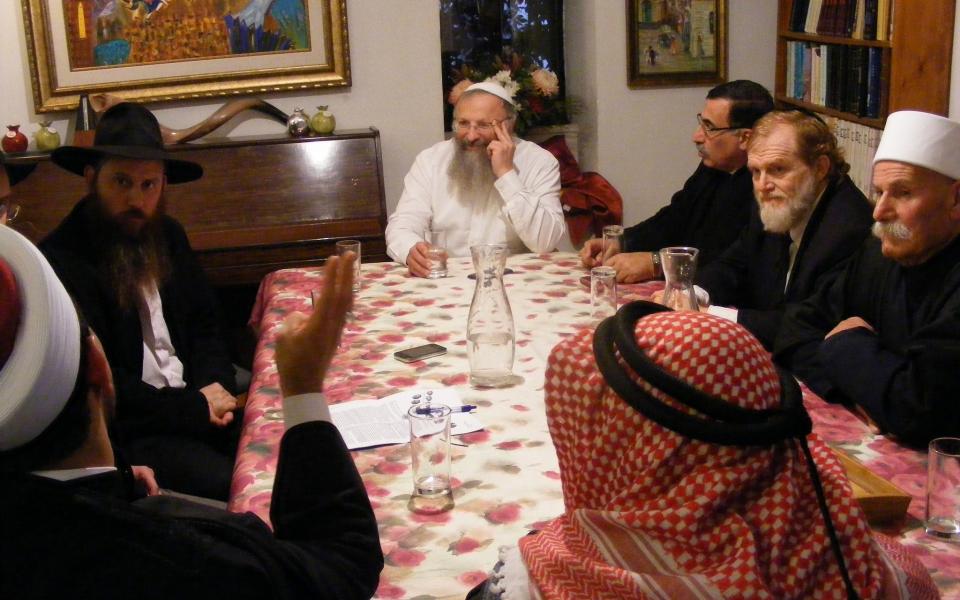
Representatives of different faiths come together in respectful dialogue.
In URI, whether we are Cooperation Circle members facilitating dialogue to reduce local tensions, or staff and leadership partners within our URI community, conflicts arise that give us opportunities to get better at having difficult dialogues.
Much has been written on this topic. Here are a just few pointers to encourage us to see the conflicts we face as opportunities for learning that enrich our lives our lives and our peacebuilding work. In URI, we believe what we have to learn to do is to solve problems collaboratively. It can be a lifelong project!
From Victor Kazanjian’s Workshop in Sarajevo, September 2018:
Difficult dialogue encourages:
- SPEAKING for oneself, respectfully and from personal experience
- LISTENING for what one wants to understand better vs. for what one wants to debate
- REFLECTING on one’s own experiences and perspectives
- INQUIRY into the experiences and perspective of others
From Ken Cloke - There is No Them, There is Just Us (DailyGood.org)
The very first skill that we need to learn in order to handle our conflicts differently is a very simple one: Are we going to engage in the conflict and behave badly, or are we going to try to stop and figure out what's actually going on here?
It is natural for people to want to avoid conversation (with people they have a conflict with) because they have, in fact, betrayed our trust somehow. Because they have not met our expectation, because we don’t know any longer who they are or believe they don’t know who we and therefore we shut ourselves down inside.
From Heartland Institute Thought Leader Gathering - Principles of Conversation
- Listen with all of our attention
- Suspend Certainty – don’t let what you know get the best of you
- Hold the Space for Difference – be aware of our judgments. Be curious
- Slow Down the Inquiry - let there be spaces between the speakers
- Speak from Your Own Experience – speak our truth
For more information and pointers for having difficult dialogue, go to URI North America’s Newsletter Resource Nook.